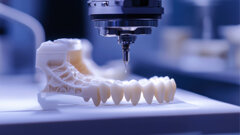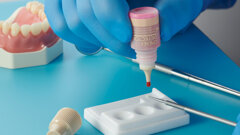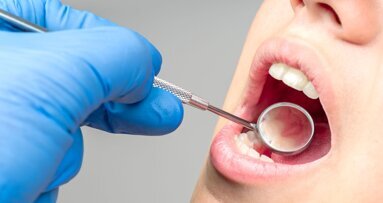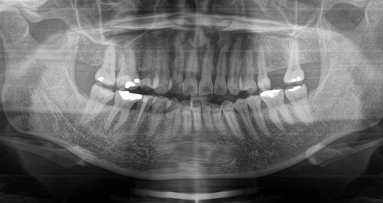LONDON, England: Periodontal treatment is known to trigger a short-term systemic inflammatory response, and the systemic effects of this have prompted interest in strategies to mitigate this inflammation. Fasting has shown promise in lowering inflammation, but adherence is difficult. In a feasibility study, researchers from King’s College London and Akdeniz University in Turkey have assessed the safety and potential benefits of combining non-surgical periodontal therapy with a dietary option with higher likely compliance for treating patients with severe periodontitis.
Unlike traditional fasting, which requires complete abstinence from food, a fasting-mimicking diet (FMD) is a carefully designed low-calorie diet that provides essential nutrients while inducing a fasting-like state in the body and is followed for several days each month. Scientific evidence suggests that this approach triggers cellular and metabolic responses similar to those of prolonged fasting, including reduced inflammation and enhanced tissue repair, but with greater patient adherence and reduced discomfort compared with complete fasting.
In the study, nineteen patients with severe periodontitis were randomised to receive standard periodontal treatment either alone or with a five-day course of an FMD. The study found that the FMD was safe and well tolerated and that it had only mild and temporary side effects, such as nausea, dizziness, weakness and fatigue.
While no statistically significant differences in systemic inflammatory markers were observed, three months after treatment, there was a trend towards a greater reduction in serum C-reactive protein in the FMD group compared with the controls. Additionally, a trend towards lower levels of key inflammatory biomarkers in the crevicular fluid was observed one day after treatment in FMD patients.
The study’s senior and lead authors, respectively, Prof. Luigi Nibali and Dr Giuseppe Mainas from the Faculty of Dentistry, Oral and Craniofacial Sciences at King’s, explained in a university press release: “By potentially modulating the inflammatory response, this fasting-mimicking approach may lead to decreased systemic and local inflammation.”
“The observed results suggest that FMD may effectively have systemic anti-inflammatory effects in the oral cavity. This research introduces a novel, non-invasive dietary approach to complement periodontal therapy, paving the way for future studies to further explore its clinical impact,” they continued.
The study, titled “The application of a fasting-mimicking diet in periodontitis. A feasibility study”, was published in the May 2025 issue of the Journal of Dentistry.
Topics:
Tags:
As digitalisation increases and artificial intelligence (AI) introduces new possibilities, workflows, diagnosis and treatment processes are becoming more ...
PHILADELPHIA, US: Periodontitis is one of the world’s most prevalent health conditions, affecting between 20% and 50% of the global population—roughly ...
DUNEDIN, New Zealand: Māori make up over 17% of the New Zealand population and are twice as likely to develop severe periodontitis as non-Māori New ...
VIENNA, Austria: On this World Diabetes Day, the European Federation of Periodontology (EFP) calls attention to the growing body of scientific evidence that...
A 48-year-old female patient was referred to our clinic owing to a defective amalgam restoration on tooth #46. She had spontaneous acute pain in the area of...
Live webinar
Wed. 25 February 2026
11:00 am EST (New York)
Prof. Dr. Daniel Edelhoff
Live webinar
Wed. 25 February 2026
1:00 pm EST (New York)
Live webinar
Wed. 25 February 2026
8:00 pm EST (New York)
Live webinar
Tue. 3 March 2026
11:00 am EST (New York)
Dr. Omar Lugo Cirujano Maxilofacial
Live webinar
Tue. 3 March 2026
8:00 pm EST (New York)
Dr. Vasiliki Maseli DDS, MS, EdM
Live webinar
Wed. 4 March 2026
12:00 pm EST (New York)
Munther Sulieman LDS RCS (Eng) BDS (Lond) MSc PhD
Live webinar
Wed. 4 March 2026
1:00 pm EST (New York)



 Austria / Österreich
Austria / Österreich
 Bosnia and Herzegovina / Босна и Херцеговина
Bosnia and Herzegovina / Босна и Херцеговина
 Bulgaria / България
Bulgaria / България
 Croatia / Hrvatska
Croatia / Hrvatska
 Czech Republic & Slovakia / Česká republika & Slovensko
Czech Republic & Slovakia / Česká republika & Slovensko
 France / France
France / France
 Germany / Deutschland
Germany / Deutschland
 Greece / ΕΛΛΑΔΑ
Greece / ΕΛΛΑΔΑ
 Hungary / Hungary
Hungary / Hungary
 Italy / Italia
Italy / Italia
 Netherlands / Nederland
Netherlands / Nederland
 Nordic / Nordic
Nordic / Nordic
 Poland / Polska
Poland / Polska
 Portugal / Portugal
Portugal / Portugal
 Romania & Moldova / România & Moldova
Romania & Moldova / România & Moldova
 Slovenia / Slovenija
Slovenia / Slovenija
 Serbia & Montenegro / Србија и Црна Гора
Serbia & Montenegro / Србија и Црна Гора
 Spain / España
Spain / España
 Switzerland / Schweiz
Switzerland / Schweiz
 Turkey / Türkiye
Turkey / Türkiye
 UK & Ireland / UK & Ireland
UK & Ireland / UK & Ireland
 Brazil / Brasil
Brazil / Brasil
 Canada / Canada
Canada / Canada
 Latin America / Latinoamérica
Latin America / Latinoamérica
 USA / USA
USA / USA
 China / 中国
China / 中国
 India / भारत गणराज्य
India / भारत गणराज्य
 Pakistan / Pākistān
Pakistan / Pākistān
 Vietnam / Việt Nam
Vietnam / Việt Nam
 ASEAN / ASEAN
ASEAN / ASEAN
 Israel / מְדִינַת יִשְׂרָאֵל
Israel / מְדִינַת יִשְׂרָאֵל
 Algeria, Morocco & Tunisia / الجزائر والمغرب وتونس
Algeria, Morocco & Tunisia / الجزائر والمغرب وتونس
 Middle East / Middle East
Middle East / Middle East







































To post a reply please login or register